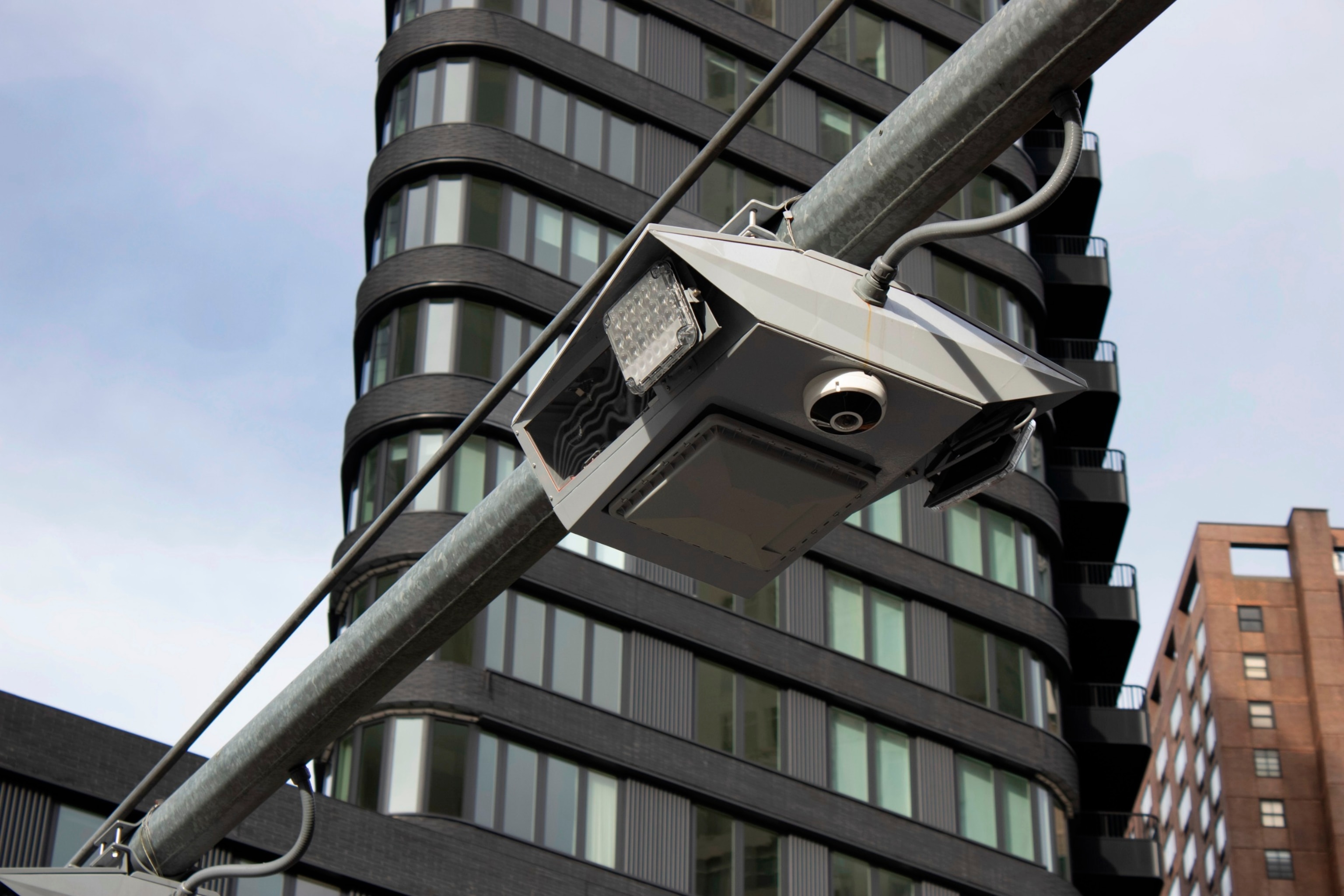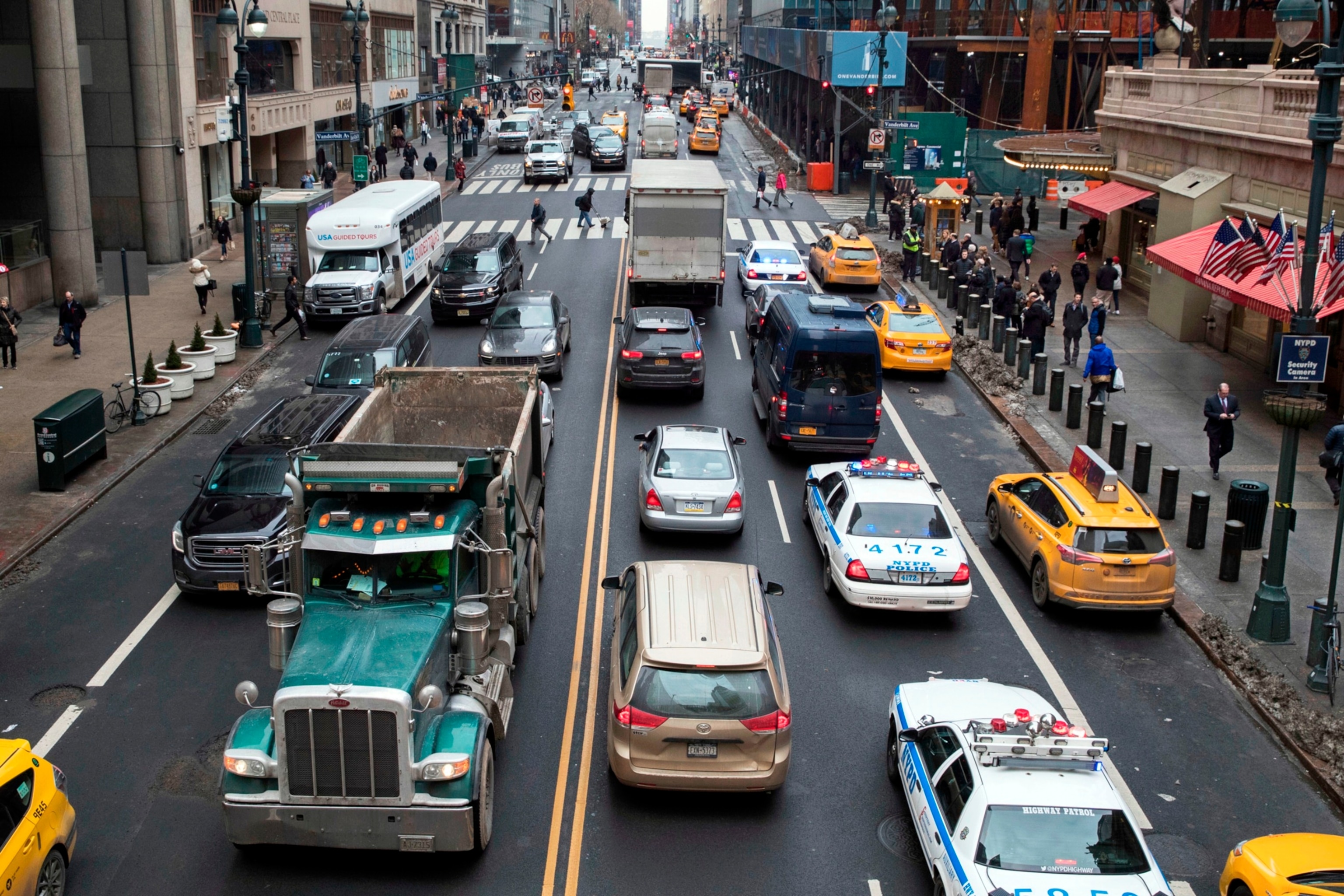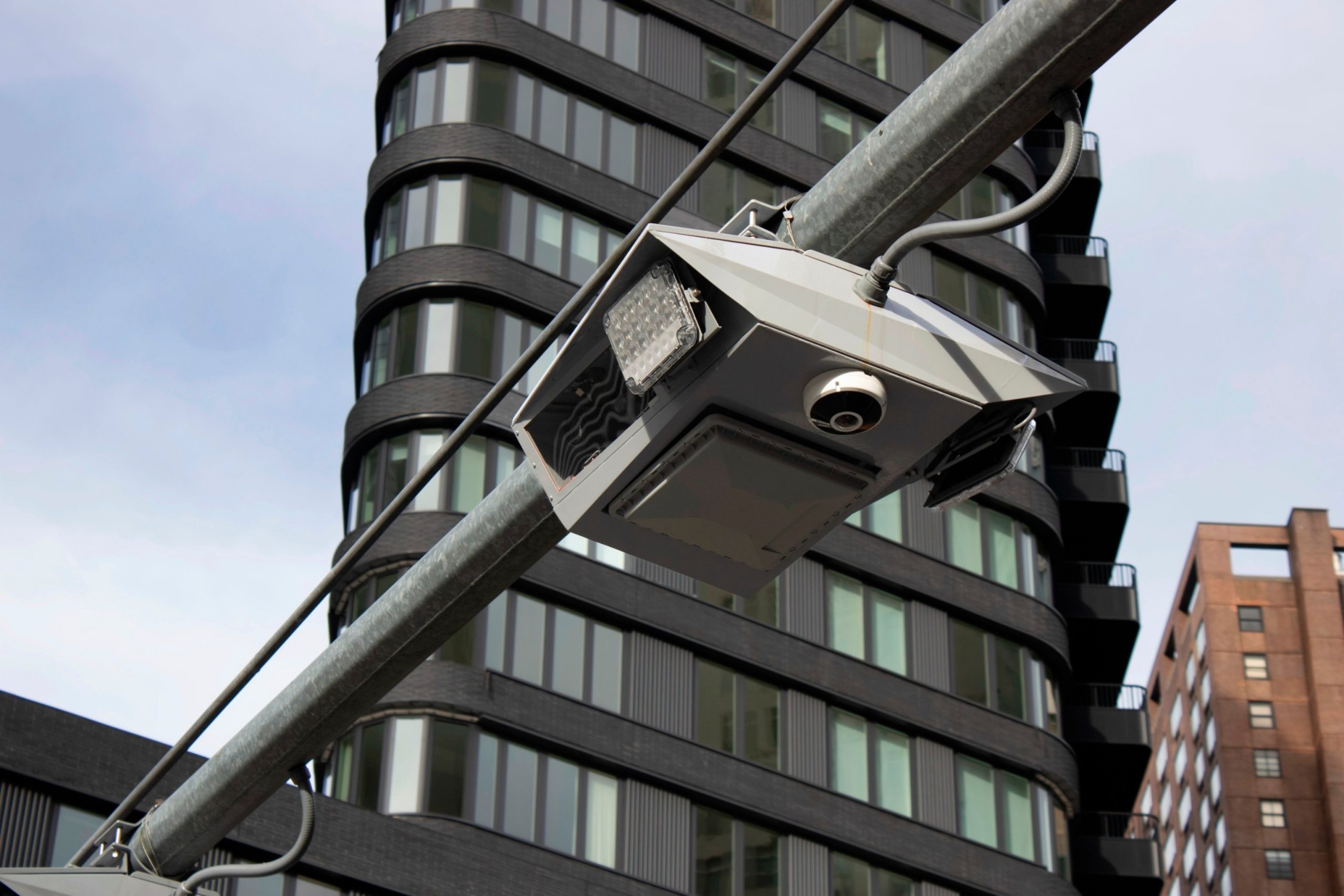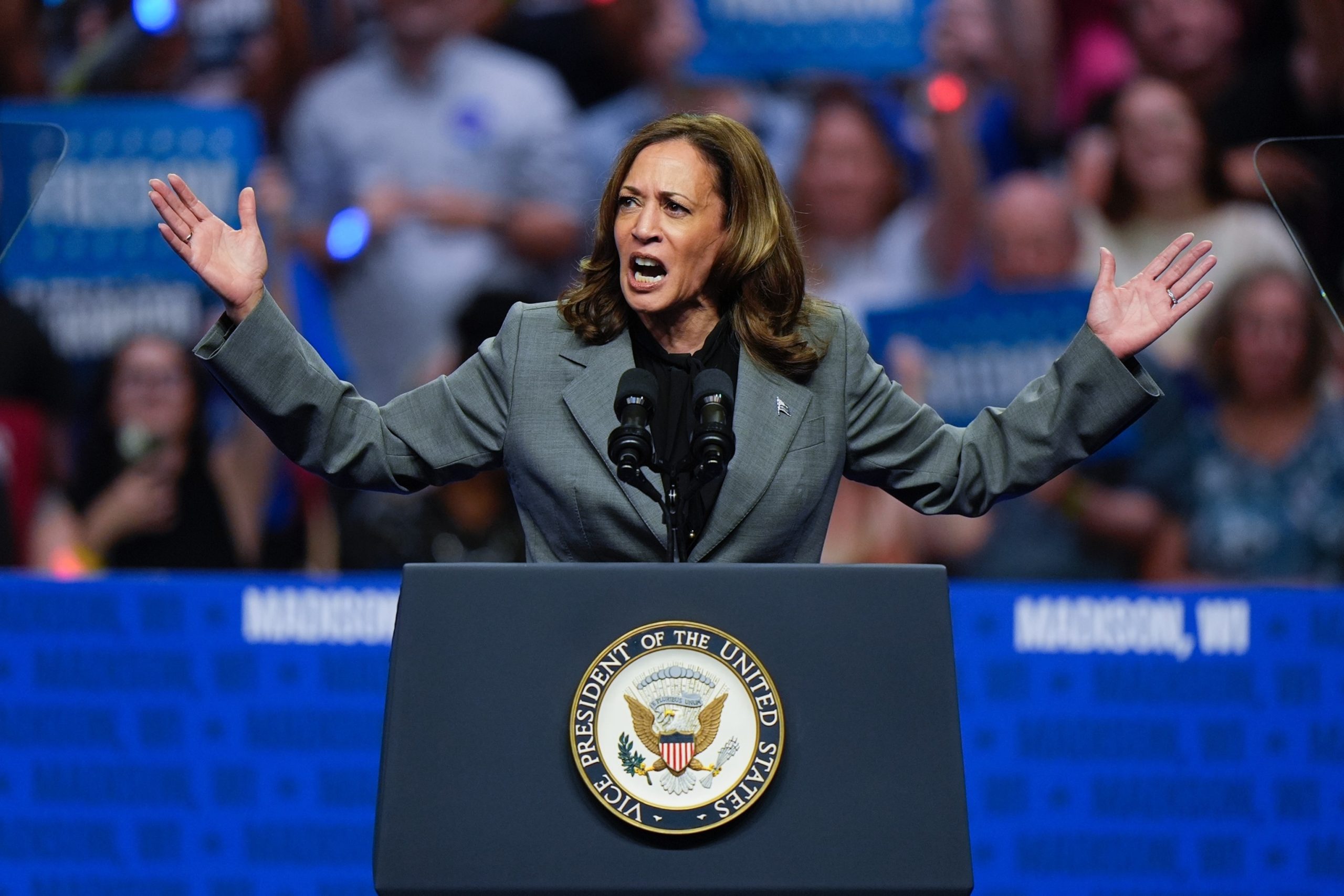New York Gov. Kathy Hochul has indefinitely postponed the implementation of congestion pricing, which had been scheduled to begin at the end of the month, an official briefed on the decision told ABC News.
The plan would charge a $15 toll for passenger cars driving south of 60th Street from 5 a.m. to 9 p.m. on weekdays.
There are two reasons for the delay, according to the sources — one economic and one political.

Recently installed toll traffic cameras hang above West End Avenue near 61st Street in the Manhattan borough of New York, Nov. 16, 2023.
Ted Shaffrey/AP, FILE
Hochul is becoming convinced the timing is not right because Manhattan businesses have not fully recovered from the pandemic and because Democrats are facing difficult House races in the New York City suburbs where the plan is unpopular, according to the official.
Republicans have planned to use congestion pricing as a political wedge.
The governor’s office declined to comment.
The Metropolitan Transportation Authority, which would potentially face a $1 billion budget deficit without implementation, declined to comment.
Trending Reader Picks
“Delaying congestion pricing is a slap in the face to the millions of New Yorkers who rely on public transportation every day just to appease the program’s loudest foes,” Elizabeth Adams, deputy executive director for public affairs for Transportation Alternatives, a group that advocates for public transit, said in a statement. “Congestion pricing is a $15 billion lifeline for the MTA — critical funding that will be lost if the program is stalled.”
She continued, “The next time your train is late, your bus is trapped in traffic, your subway station is still missing an elevator, you know who to blame: Governor Kathy Hochul.”

Traffic traverses 42nd Street near Grand Central Terminal, in New York, Jan. 11, 2018.
Mary Altaffer/AP, FILE
There remains a belief that congestion pricing is inevitable.
The plan has exemptions for school buses and “specialized government vehicles” that perform critical work in the congestion zone. Fire trucks, ambulances and police cars are also exempt, as are bus lines like Greyhound, Megabus and the Hampton Jitney. However, the fees will be higher for some other vehicles, such as trucks and some buses.
There are several pending lawsuits in New York and New Jersey that could complicate the plan’s implementation. New Jersey Gov. Phil Murphy vowed to fight the fee on behalf of commuters going into New York City, calling it a “blatant cash grab.”
New York City residents and commuters can breathe a sigh of relief as officials have announced a delay in the implementation of the controversial congestion pricing toll in Manhattan. The toll, which was set to go into effect in January 2021, has been postponed due to ongoing discussions and concerns raised by various stakeholders.
Congestion pricing is a strategy aimed at reducing traffic congestion and improving air quality by charging vehicles a fee to enter certain high-traffic areas during peak hours. The idea behind congestion pricing is to incentivize drivers to carpool, use public transportation, or choose alternative routes, ultimately reducing the number of vehicles on the road and easing traffic congestion.
While congestion pricing has been successful in cities like London and Singapore, its implementation in Manhattan has been met with mixed reactions. Supporters argue that it will help reduce traffic congestion, improve air quality, and generate much-needed revenue for public transportation projects. However, opponents worry that it will disproportionately impact low-income residents who rely on their cars to get to work and may not have access to reliable public transportation options.
The delay in implementing the congestion pricing toll in Manhattan gives officials more time to address these concerns and ensure that the toll is implemented in a fair and equitable manner. It also allows for further discussions with stakeholders to come up with a plan that works for everyone involved.
In the meantime, city officials are continuing to study the potential impacts of congestion pricing and are working on developing a comprehensive plan that takes into account the needs of all New Yorkers. This delay provides an opportunity for residents and commuters to voice their opinions and concerns about congestion pricing and work together to find a solution that benefits everyone.
While the delay may be disappointing for some who were looking forward to the implementation of congestion pricing, it is important to remember that this decision was made in the best interest of all New Yorkers. By taking the time to address concerns and ensure that the toll is implemented fairly, officials are working towards creating a more sustainable and efficient transportation system for the city.



